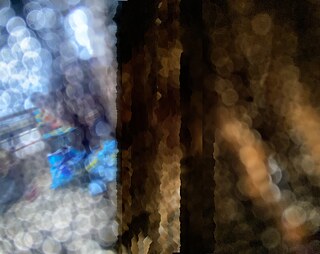Project Grants
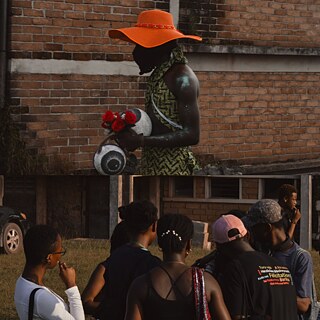
This project will take a tripartite approach of historical exploration, contemporary relevance, and a forward-looking perspective to interrogate the sociopolitics and existence of queerness in Nigeria. With a view of celebrating the beauty and courage of LGBTQI+ Nigerians, it will emphasize the need to form stronger communal bonds and the power of Love as a force of change.
This project is divided into three acts, each one a distinct but interconnected performance. The Year of the Fabulous aims to:
- Remember the fabulous history of Queer Nigeria, before and after the SSMPA, celebrating historical icons and drawing inspiration from their lives.
- Inquire into the interior and interpersonal lives of Queer Nigerians within the community and their negotiations with the oppressive socio-political ethos of the Nigerian state.
- Emphasize the power of community and Love in resistance and celebrate queer-indigenous modes of care and community justice.
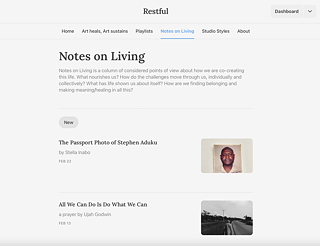
The project also has a bimonthly radio show, on the Accra-based Oroko Radio, where guests share music and discuss how they are finding healing and creating meaning through their work and in their everyday lives. Restful has evolved from being a personal newsletter run by the writer and artist Immaculata Abba to becoming a digital magazine of new and emerging Nigerian voices contributing to the global conversation on wellbeing and social/spiritual connectedness.
It is a humanities-driven magazine exploring a thesis on holistic well-being as an intersection of mind-body-soul-community-environment experiences. Our target audience is people craving delightful and deeply thoughtful content to enrich their social and spiritual lives while learning new things about the world around them. It is especially meaningful to run a magazine that pays Nigerian writers and artists at a time of economic strife that’s sending signals that culture, spirituality and rest are non-essential. The hope is to use this first print publication to gather enough momentum and resources to keep us producing monthly digital issues and annual print issues.
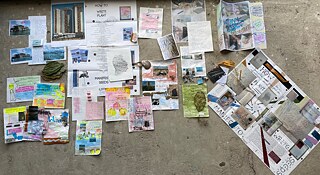
Through writing and repetition, we continue to imagine, ideate, and enact the story of FESTAC 2077. The platform, a partnership between iranti press and A Whitespace Creative Agency (AWCA), activates cultural experiences dedicated to cultural production, community engagement, literacy, capacity building, and creating dynamic, accessible, and innovative art books.
FESTAC 2077 began in 2023 with an experiential writing workshop in Lagos that asked how we begin to write the story of FESTAC 2077. Over a week, writers, artists, and cultural practitioners participated in a workshop about writing in and within public space. FESTAC 2077 continues this year with a one-month experimental publishing workshop inviting the eight participants from the 2023 workshop to come together and continue building on the speculative brainstorming from 2023. Of particular focus during this workshop are experimental and interactive publishing acts, writing that can be experienced in a public form while challenging traditional publishing forms, spaces, and material, in the mapping and ideation of FESTAC 2077. Participants will create publishing acts based on the speculative creative production from the May 2023 workshop.
Instagram: @festac2077 @iranti_press
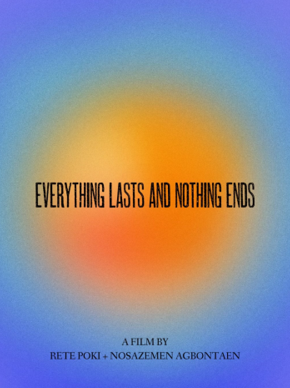
Everything Lasts and Nothing Ends is a narrative film centred around two queer Nigerian women and Lagos City, as both a physical space and spiritual entity of chaos and wonder. It is fundamentally a love letter to Lagos as a city and all that its spirit represents, as the two women create language out of action since the language for what they are and what they can be is scarce in a socio-political climate like Nigeria.
We hope to reflect the vibrant, bustling, colourful cacophony of sights and sounds that the space contains through the rarely explored lens of Nigerian women, and present a novel depiction of the day-to-day lives of middle-class Nigerian youths. As a result, the driving forces and realities of mass exodus (“japa”) from Nigeria to countries such as Germany, Canada, and the United Kingdomis an important element of the film. This project highlights and exemplifies the experiences and realities that make Lagos unique, depicting the city through a magical realist lens.;
Cinema plays a powerful role in shaping public perception and appreciation of spaces and identity, and we hope to contribute towards the shaping of an alternative narrative of Nigeria.
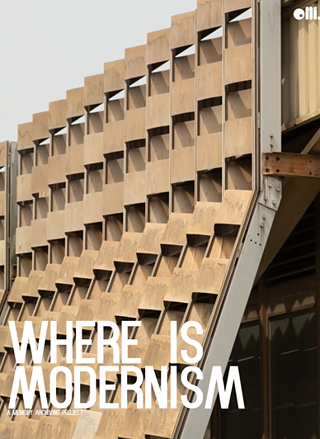
Currently, this architecture is being revisited by the global north looking to learn from its climate-conscious responses, which were an epitome of sustainable building practices for its time. The project develops on the scientific learnings which have historically taken center stage to center and highlight the latent role of art and collaborations with local Nigerian artists and makers in contextualizing the foreign principles of modernism and its resultant architecture.
The most common forms of arts being lost, which gained the patronage of the regional modernist architects and their buildings (1950s-1980s), are frescoes, sculptures, and mosaics. In most cases, they were installed by renowned modernist artists like Ben Enwonwu, Jimoh Buraimoh, Erhabor Emokpae, Felix Idubor, Yusuf Grillo, Bruce Onabrakpeya, Susan Wenger, Paul Mount, and others.
The project attempts a shift from traditional methods of conservation and preservation, which are immensely valuable but met with extreme opposition due to unwilling governmental action in Nigeria. By adopting technology as a tool to conserve and preserve the memory of these now-abandoned tropical modernist buildings, it might be transferable beyond the physical medium for generations. Culturally, by shining a light on the artist collaborations at the time, the project unearths new narratives about the Bauhaus-influenced modernist style and regional answers which the architecture proffered that are specific and local to Nigeria.
Using research, photography, virtual reality, and augmented reality as its primary tools, the project aims to contribute to cultural sustainability, heritage preservation, and documentation in Africa through collaboration across photographers, researchers, and creative technologists.
